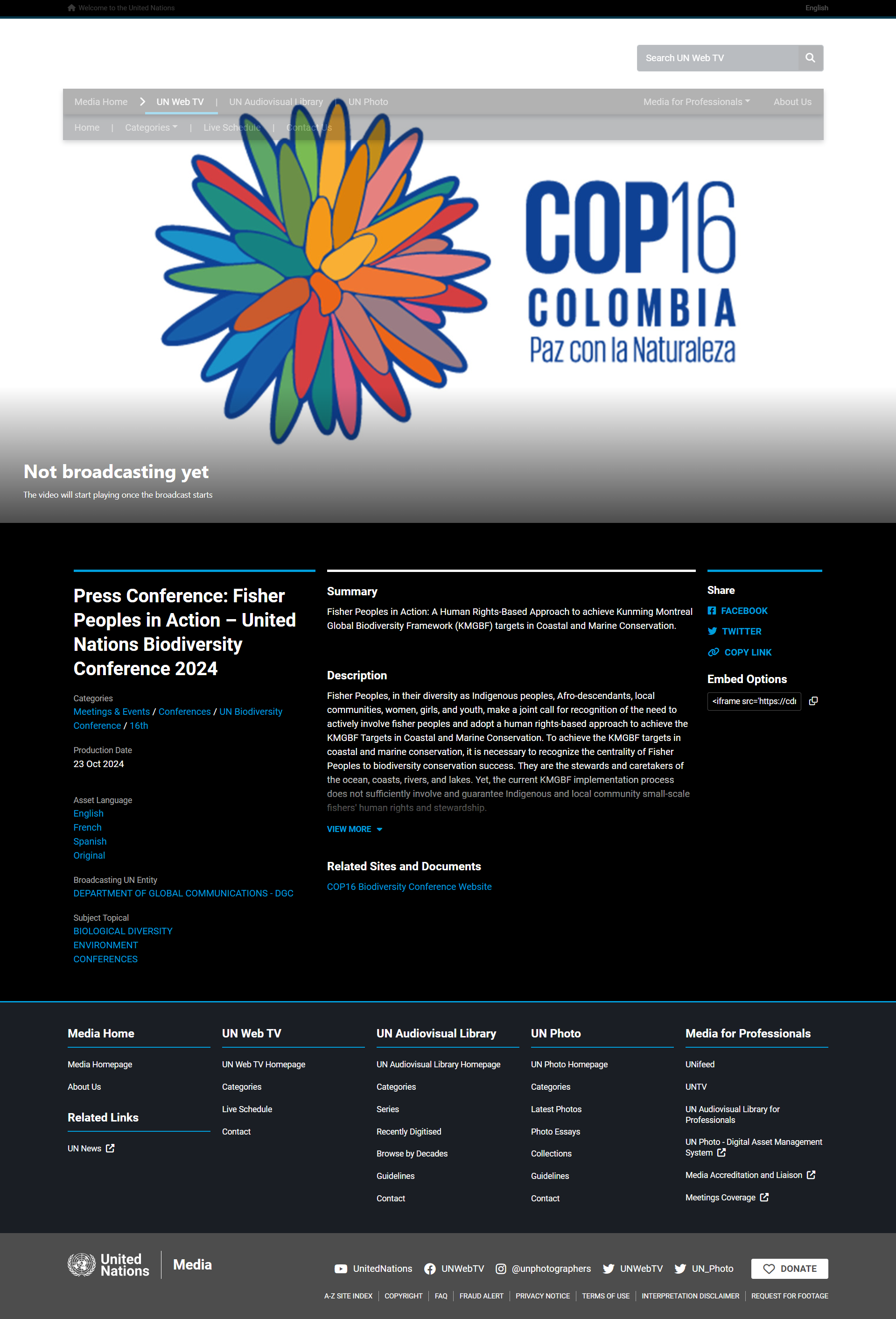
Water covers 70 percent of the Earth. Marine and freshwater environments sustain an abundance of life in its spectacular diversity. Through our history, small-scale fishing communities have interacted and depended on these living resources. A threat to aquatic environments is a danger to artisanal fishers.
Their protection and stewardship are essential to the communities and cultures they sustain. This relationship is a framework to manage conflicts and improve the quality of life and livelihood of small-scale fishers. It was recognized in the UN Convention on Biological Diversity.
Governments increasingly designate marine protected areas (MPAs) for conservation and management. This legal instrument does help but its implementation has raised serious concerns. Target-driven expansion of MPAs is fixated on quantitative goals. This has hit the rights, livelihoods and sustainable use practices of small-scale fishing communities. MPAs—created often in a non-consultative and non-participatory manner—have focused on regulating/restricting their fisheries, failing to recognize their sustainable livelihoods, culture and survival.
It is imperative that protection efforts are grounded in principles of sustainable use. That their processes are inclusive and recognize</b< traditional local systems of knowledge and governance, building upon them. Artisanal fishers must be the frontline of marine biodiversity conservation. There is an urgent need for systematic improvements on all such matters.
A range of ICSF’s initiatives highlight the social and political dimensions of conservation. The importance of livelihoods of poor and vulnerable communities, of their participation and consultation. The co-management of resources by fishing communities, based on a human rights approach to conservation.

Fisher Peoples in Action: A Human Rights-Based Approach to achieve Kunming Montreal Global Biodiversity Framework (KMGBF) targets in Coastal and Marine Conservation. Description: Fisher Peoples, in their diversity as Indigenous peoples, Afro-descendants, local communities, women, girls, and youth, make a joint call for recognition of the need to actively involve fisher peoples and adopt a human rights-based approach to achieve the KMGBF Targets in Coastal and Marine Conservation. To achieve the KMGBF targets in coastal and marine conservation, it is necessary to recognize the centrality of Fisher Peoples to biodiversity conservation success. They are the stewards and caretakers of the ocean, coasts, rivers, and lakes. Yet, the current KMGBF implementation process does not sufficiently involve and guarantee Indigenous and local community small-scale fishers’ human rights and stewardship. For more details, please visit: https://webtv.un.org/en/asset/k15/k15icg47f5
Draft agreement under the United Nations Convention on the Law of the Sea on the conservation and sustainable use of marine biological diversity of areas beyond national jurisdiction Download
The purpose of this document is to provide information on the activities of the Food and Agriculture Organization of the United Nations (FAO) that are relevant to the biological diversity...
The 2022 edition of The State of World Fisheries and Aquaculture coincides with the launch of the Decade of Action to deliver the Global Goals, the United Nations Decade of...
This note discusses the extent to which international legal instruments and processes have recognized the rights of the small-scale and artisanal fishing communities, as well as some of the lacunae...
Global Biodiversity Outlook (GBO), a flagship publication of the CBD is a periodic report that summarizes the latest data on the status and trends of biodiversity and draws conclusions relevant...
This study compiled an estimate of the total economic value (TEV) of the deep seas. Comprehensively, the TEV assessed for the deep-sea ecosystem as a whole is estimated at USD...
This handbook discusses strategies on how to weave the human right to a clean and healthy environment together with the SDGs and the post-2020 global biodiversity framework with a focus...
Seagrasses are marine flowering plants found in shallow coastal waters contributing to well-beingthrough food security (fish), improved quality of water through filtration by seagrasses, protection of coasts from erosion, storms...
Local Biodiversity Outlooks presents perspectives and experiences of indigenous peoples and local communitieson the current social-ecological crisis, contributions to the implementation of the Strategic Plan for Biodiversity 2011–2020 and to...
Examining the marginal willingness-to-pay and compensating surplus in response to policy change of ecosystem services of Sundarbans based on focus group discussion and survey, influential factors to choice the relevant...